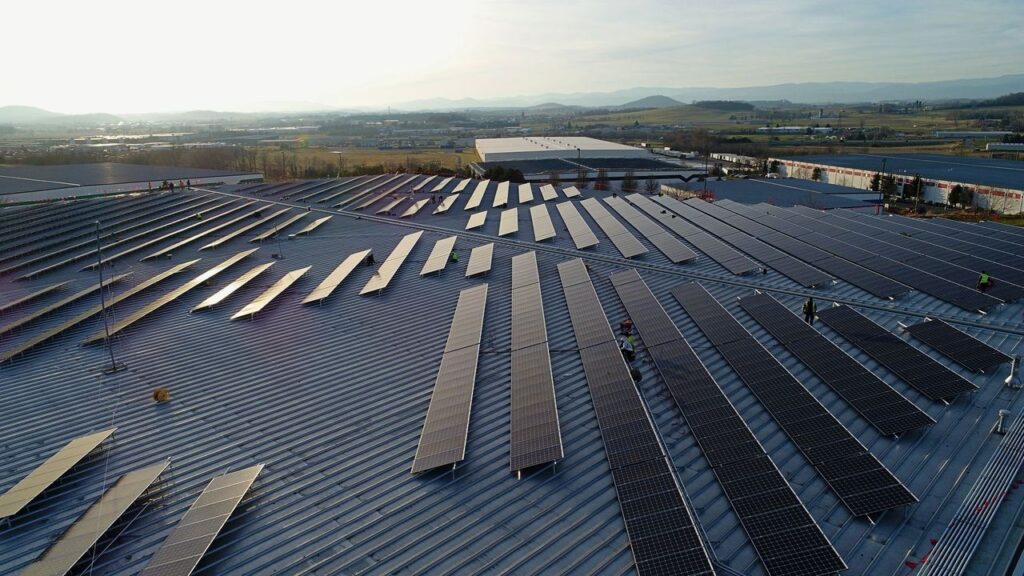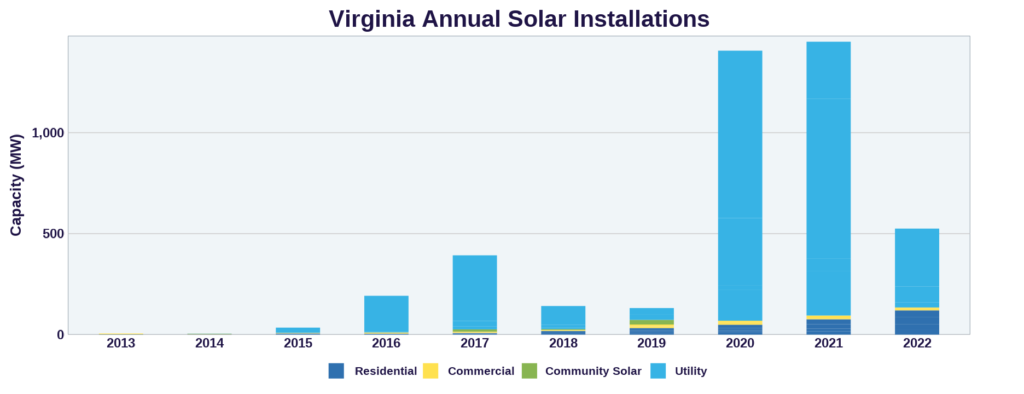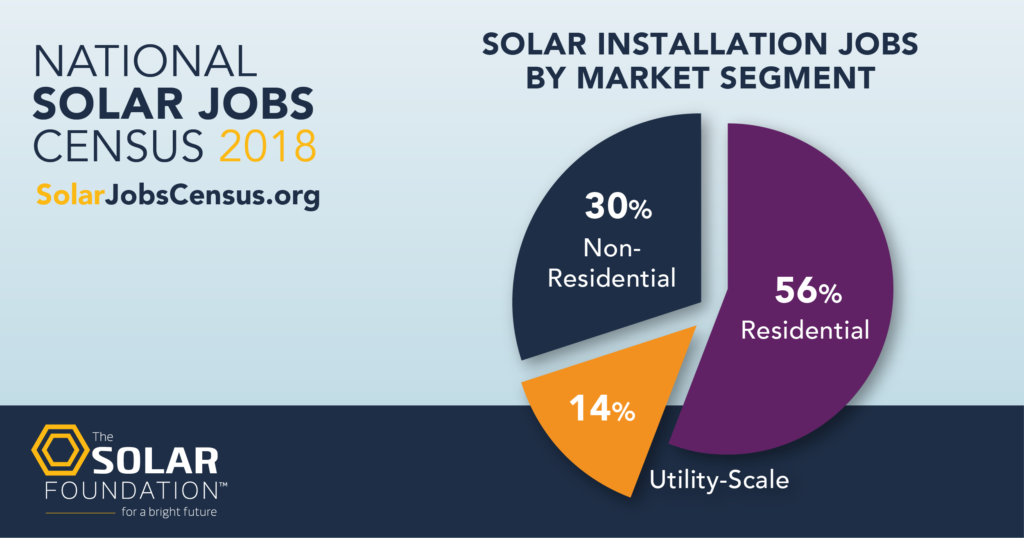
Virginia’s solar rush is here. As of 2021, there were 208 solar companies and 4,791 solar jobs in the Commonwealth, according to the Solar Energy Industries Association. Distributed “rooftop” solar needs to be a vital part of Virginia’s booming solar economy because of the high value it brings to all Virginians.
Distributed solar needs public policy and regulatory support commensurate with its benefits. But despite recent legislative action promoting solar owned by electric utilities, Virginia lags far behind its neighbors in distributed solar development.
Adding together residential, commercial and community (or shared) installations in the chart below, you can see that rooftop solar accounts for only about 25% of total solar installed in Virginia in 2022.

Virginia’s portion of rooftop solar at less than 10% cumulatively since 2013 lags far behind the nationwide cumulative average, where about 57% of solar installations are distributed residential, commercial and community solar.
Below we list the major benefits of rooftop solar to all Virginians, whether they have solar power or just get their energy from their electric utility.
- Lower Costs
- Good Jobs
- Prosperous Communities
- Cleaner Air & Water
- Reliable Power
- Preserved Open Space
Lower Costs
- Rooftop solar facilitates competition, innovation, and lower prices for Virginia consumers.
- Shading from solar panels cools buildings in summer, lowering air conditioning costs.
- Diversifies fuel sources and reduces impact of volatile fossil fuel prices on consumers.
- Reduces peak loads on the distribution grid, cutting the need for utilities to purchase expensive power on the spot market from “peaker” power plants.
- Through “net metering,” solar owners provide power to the grid that’s cheaper than other sources, saving all utility ratepayers money, even those without their own solar panels.
Good Jobs
Rooftop solar creates high-paying jobs in rural and urban Virginia ranging from skilled trades to engineers and professionals. Compared to solar owned by electric utilities, distributed solar — put on both homes and commercial buildings — provides the vast majority of jobs, a full 86%.

Prosperous Communities
Rooftop solar creates more than two times the local economic impact for every dollar invested than utility-scale solar projects. (Source: National Renewable Energy Laboratory Jobs and Economic Development Index [JEDI] Solar Model)
Cleaner Air & Water
- Rooftop solar reduces air pollution, improves air quality, and helps government meet state and federal environmental standards.
- Installing solar on rooftops, over parking areas and on small parcels of land unsuitable for other uses reduces impact on farm and forest land from construction and erosion, protecting water resources.
Reliable Power
- Rooftop solar reduces peak loads on the distribution grid and improves reliability.
- Increases resiliency from widespread power outages by keeping power flowing to critical facilities (when paired with battery storage).
- Reduces vulnerability to threats from terrorist attacks, which would focus on large, centralized power plants but be unable to target thousands of small solar arrays on homes, schools and businesses.
Preserved Open Space
- Rooftop solar doesn’t require farm or forest land for its installation. Instead, distributed solar arrays are placed in areas not used for any other purpose, such as rooftops of buildings, over parking lots and parking decks, and on land near buildings unsuitable for development or agriculture.
- Limits costly and land-intensive expansions of transmission infrastructure because it generates power where it is used.
